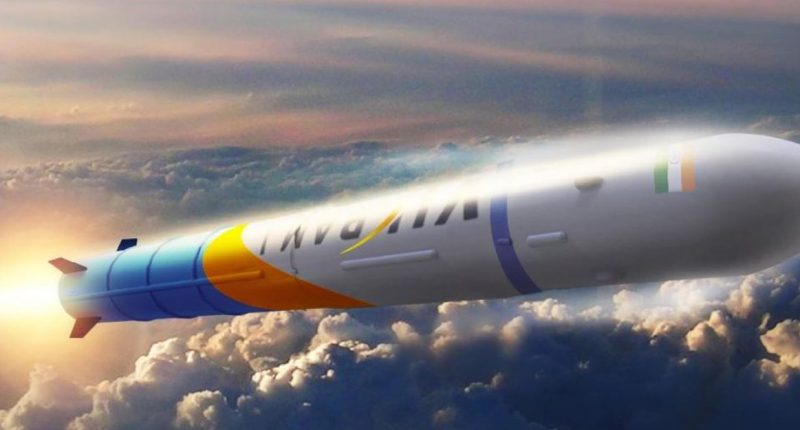Update: The original launch date was set for November 15, but has been delayed to Friday, November 18. Provided that it sees favourable weather conditions, the Vikram-S rocket will take to the skies at 11-12 AM.
In what is the herald of a new chapter in India’s spacefaring history, spacetech upstart Skyroot Aerospace is set to send the country’s first-ever privately developed rocket to the stars. The maiden launch mission is set to take off from Indian Space Research Organisation’s (ISRO’s) launchpad at Sriharikota.
The mission, named “Prarambh” (the beginning), will take to the skies in a window between November 12 and 16 – the final date of the launch will be confirmed based on the prevailing weather conditions. It is set to carry three payloads to space, one of which includes a 2.5kg payload that has been developed by students from several countries, including India.
“Thrilled to announce #Prarambh, our maiden launch mission, also the first for the Indian private space sector, with launch window between 12-16 Nov ’22. Thanks to Chairman @isro for unveiling our mission patch and @INSPACeIND for all the support,” read a tweet by the four-year-old startup. It has already received a technical launch clearance from IN-SPACe, the country’s nodal agency that acts as a medium between ISRO and India’s private space players.
Thrilled to announce #Prarambh, our maiden launch mission, also the first for the Indian private space sector, with launch window between 12-16 Nov '22. Thanks to Chairman @isro for unveiling our mission patch and @INSPACeIND for all the support.
Stay tuned🚀#OpeningSpaceForAll pic.twitter.com/xha83Ki2k0
— Skyroot Aerospace (@SkyrootA) November 8, 2022
Should the launch occur without a hitch, it will undoubtedly go down in history, and for good reason. Ever since Yuri Gagarin became the first human to go to space, several countries have been embroiled in a race when it comes to space – a race which has put man on the moon (and soon will again), rovers on Mars, deep space telescopes, and more.
India has not remained behind either, and two years ago, the country’s space economy was estimated to be $9.6 billion, as per a report by the Indian Space Association. It is also slated to reach $12.8 billion by 2025 – a mark that may be overshot if private space startups like Skyroot keep up the good work. Add to that the efforts of ISRO, reforms in the commercial space sector to facilitate the participation of the private sector, encouragement from the government, and healthy competition between India’s private players such as Skyroot, AgniKul Cosmos, Dhruva Space, and others, and it is hardly surprising that the space startup industry in India has been steadily growing.
And now, the successful launch of Prarambh with the Vikram-S launch vehicle will be a landmark one. The rocket, according to Skyroot COO Naga Bharath Daka, is a “single-stage sub-orbital launch vehicle which would carry three customer payloads and help test and validate the majority of the technologies in the Vikram series of space launch vehicles.” It is hoped that the launch will pave the way for India’s other private space players to step up and join Skyroot in launching rockets to space.
Of course, this is hardly the first time when Skyroot made the headlines for monumental occasions. Currently the most funded private space player in India, the startup raised a total of $68 million across several rounds, including $51 million in Series-B financing this September, the largest funding round ever in India’s space technology sector to date. Additionally, it successfully built and tested India’s first privately developed cryogenic, hypergolic-liquid, and solid fuel-based rocket engines.
